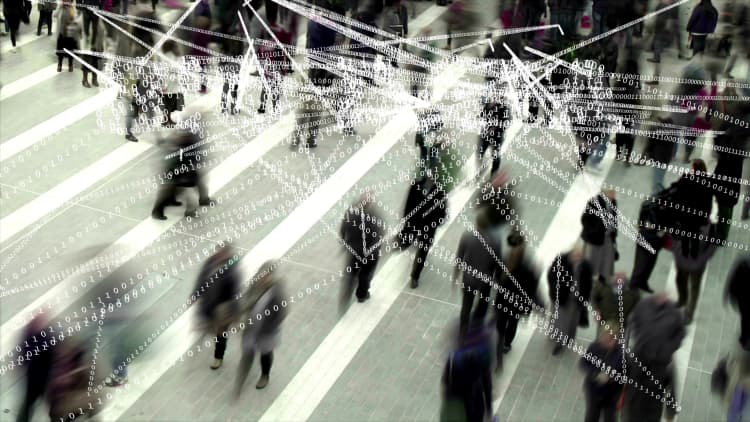Apple and Google announced new updates on Friday to their proposed system that will enable iOS and Android phones trace the spread of the Covid-19 coronavirus.
The updated system includes security and privacy enhancements that representatives from governments and public health authorities have asked for, the companies said.
In April, Apple and Google announced plans to build new technology into iOS and Android to make it possible to make contact tracing apps, which will track when people have been in close proximity to somebody who has tested positive for coronavirus, and allow public health officials to notify them that they might have been exposed. The system, which uses the Bluetooth short-range wireless technology built into both operating systems, is likely to power efforts by governments around the world efforts to use signals picked up from smartphones to alert people who may have been exposed to someone infected with Covid-19.
Apple and Google aren't building the apps. Contact tracing apps will be built deployed by public health officials, and both Apple and Google's app stores have restrictions around coronavirus apps that aren't from a recognized authority. Apple and Google's APIs will become available in mid-May, the companies previously said.
On Friday, the companies changed the terminology they're using to describe the system, calling it "exposure notification," as opposed to "contact tracing." They did this to differentiate it from traditional contact tracing practices in public health organizations, which rely on people to make lots of phone calls to warn people that they may have been exposed to someone with Covid-19.
Technical changes to Apple and Google's system on Friday include:
- It can now share the strength and duration of a Bluetooth signal so that the apps can make a better judgment of who someone has been in contact with.
- It can now alert people about the number of days since they were potentially exposed.
- The security around random keys and and the way the system handles Bluetooth metadata has been improved.
Governments are now pressing Apple to lift some of these privacy provisions so that they can build apps in conjunction with a centralized database, which would allow human contact tracers working for the government to call people and tell them they might have been exposed. (The way the Apple-Google system is set up, potentially infected people would simply get an alert on their phones, but could remain anonymous if they choose.) Governments could build these kinds of contact tracing apps without Apple's API, but they would need to stay active and running in the background on an iPhone to work, which can drain battery life and make the app unworkable.
French Digital Minister Cedric O said earlier this week that he's asked Apple to lift the technical restrictions on Bluetooth so that they can build the app. Germany has also asked Apple to loosen the Bluetooth restriction, according to Reuters.
Apple is not planning to loosen the iPhone's system limitations, which were built to protect user privacy, a representative said.
The system will be distributed to iPhones that can run iOS 13, which includes phones released in 2015 and after, and to Android phones running Android 6.0 or later that can get updates to Google services, representatives said.
In the United States, public health is a county and state function, and few digitally-focused contact tracing programs have been officially announced yet. In Europe, several countries have discussed release dates and public development of their apps, with the first targeted in May.



